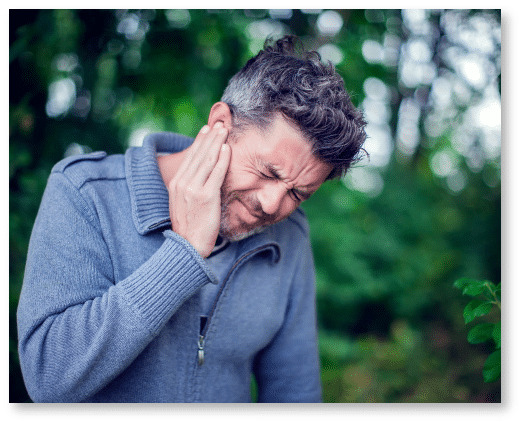
What is Tinnitus?
Tinnitus is the perception of sound in one or both ears or in the head when there is no external sound source present. Tinnitus is commonly described as ringing, buzzing or hissing, but can be any sound or combination of sounds except voices. Tinnitus perception and severity can vary greatly from person to person. As a result, plans for tinnitus management are tailored specifically to the needs of each individual.
Tinnitus Evaluations
The tinnitus specialists at Hearing Evaluation Services have advanced training in the evaluation and management of tinnitus. Our specialists will assess your tinnitus needs and work with you to design a plan for successful long-term management of your tinnitus.
Ultra-High Frequency Audiometry
Ultra-high frequency audiometry is an extension of the standard audiometric evaluation that allows the audiologist to further examine the patient’s hearing beyond the range that is tested on a standard hearing test. This can help identify patients with ultra-high frequency hearing loss that may not be identified on a standard audiogram, which is highly correlated with tinnitus.
Advanced Tinnitus Assessment
For patients who are significantly bothered by their tinnitus, the audiologist may recommend this testing to better understand the qualities of the patient’s tinnitus, specifically the pitch, and loudness. The audiologist will also assess if the patient’s tinnitus can be masked using various forms of low-level noise. This testing guides the audiologist in creating a customized tinnitus management program.
Loudness Discomfort Levels (LDL)
Approximately 10-30% of patients with tinnitus also experience decreased sound tolerance or hyperacusis. LDL testing helps the audiologist establish the level of sound that is uncomfortable for the patient. It also identifies patients with underlying sound sensitivity that will need to be addressed as part of their tinnitus/decreased sound tolerance management plan.
Otoacoustic Emissions
Otoacoustic emission testing further evaluations the status of the inner ear, specifically the outer hair cells in the cochlea. This is an objective test used to identify outer hair cell damage that can result in hearing loss and tinnitus perception.
Do You Experience Tinnitus?
We can help! Join Hearing Evaluation Services for an informative discussion on tinnitus. Learn about the causes, links to hearing loss and available therapies for tinnitus management.
These complimentary education sessions are held virtually each month from 3:30-4:30 pm.
To reserve your spot today, call (716) 833-4488.

